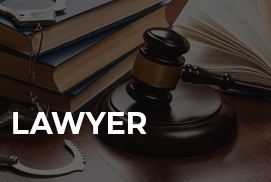

The esports industry is a rapidly growing field that requires various professionals with diverse skill sets. One such profession is that of a lawyer. Esports lawyers have become essential in the industry to deal with issues such as contracts, player agreements, sponsorships, and intellectual property rights.
In this article, we will discuss the role in the esports industry and how their expertise can benefit esports organisations, teams, and players.
Esports lawyers, also known as sports lawyers, are legal professionals who specialise in the esports industry. They provide legal advice, representation, and services to individuals, teams, sponsors, and organisations in the esports ecosystem. Their primary responsibility is to ensure that their clients’ interests are protected and to help them navigate the legal complexities of the esports industry.
An esports lawyer’s job can vary depending on their client’s needs. Some common responsibilities include drafting and reviewing contracts, negotiating deals, resolving disputes, and protecting intellectual property rights. They also advise clients on legal issues related to broadcasting, marketing, and branding.
To become an esports lawyer, you must have a law degree and a license to practice law. However, it’s not enough to have a legal background; you also need to have knowledge and interest in the esports industry. A strong understanding of the esports landscape, including its governing bodies, tournaments, teams, and players, is necessary to provide effective legal counsel.
In addition, esports lawyers must have excellent communication skills to communicate complex legal concepts to their clients in a clear and concise manner. They should also have strong negotiation skills, attention to detail, and the ability to think strategically.
The esports industry has seen a significant increase in legal issues in recent years. With the industry’s growth and development, legal disputes have become more frequent and complex. As a result, the need for esports lawyers has increased to provide legal representation, advice, and guidance to the various stakeholders in the industry.
Esports lawyers can help organizations and players negotiate contracts, review sponsorship agreements, and protect their intellectual property rights. They can also provide legal advice on issues related to player transfers, tax implications, and visa requirements.
Esports lawyers can also play a crucial role in resolving disputes within the industry. They can assist in settling disputes related to sponsorship, broadcasting rights, and player contracts, among others.
In conclusion, esports lawyers are vital professionals in the esports industry. Their expertise is necessary to navigate the legal complexities of the industry and ensure that their clients’ interests are protected. The growth of the esports industry has increased the need for esports lawyers to provide legal representation and advice to the various stakeholders in the industry. As the industry continues to grow, the role of esports lawyers will become even more critical.
